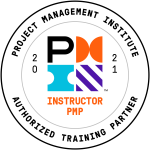The course content will discuss the below topics within 7 Major Sections,
- Planning Concepts/Techniques
- Scheduling Development/Techniques
- Memorandum/Letter Writing
- Delay Analysis
- Stakeholder Analysis
- Network Diagram Analysis
- Risk Analysis
30 hours of intensive and interactive sessions, we are going to cover the following topics below. The construction industry is a heterogeneous mix of companies ranging in size from large operations to one-person operations. No matter the size, construction companies face similar situations and, to some degree, similar pressures.
Planning is an important management function and its effective execution is a condition precedent for successful project outcomes. This entire training session addresses operational rather than strategic aspects by covering the entire range of topics given below for your perusal,
- Contract Documents
- Contract Specifications
- Shop Drawings
- Long-Lead Items Purchase Orders
- Legal Aspects of the Project Schedule
- Outside Delays
- Legal Notices
- Production Planning Overview
- Scheduling Fundamentals
- Progress Schedule Regimentation
- Project Pre-con Meeting
- Bid Award Prior to Commencement
- Shop Drawings Log
- Transmittal
- Project Schedule Planning
- Activity Arrows
- Dummy Arrows
- I-J Numbers
- Milestones
- Job Logic
- Logic Loops
- Program Logic
- Logic-Based Scheduling
- Types and Uses of Float
- Constraints
- Float Example
- Phase Scheduling
- Multiple Critical Paths
- Bar Charts
- S-Curve Charts
- CPM Versus Bar Chart Methods
- Arrow Diagramming (ADM)
- Precedence Diagramming (PDM)
- ADM versus PDM
- Activity-on-Node Format
- Fast-Tracking
- Design/Build
- Fast-Track CPM
- Cost-Loaded CPM
- Resources
- Distribution of resources
- Resource leveling
- Resource leveling performed by computers
- Managing the labor resource
- Managing materials
- Managing plant and equipment
- Delay versus Disruption
- Responsibility/Types/Force Majeure
- As-Planned Logic Network
- As-Should-Have-Been CPM Network
- As-Planned Schedule
- As-Built Schedule
- As-Built Logic Network
- Causative Factors
- As-Impacted Logic Network
- As-Impacted Schedule
- Time Impact Evaluations
- Zeroing Out
- Zeroing to a Collapsed As-Impacted Logic Network
- Limitations of the TIE Methodology
- Risk and uncertainty
- Principles of risk management
- Risk management plan



